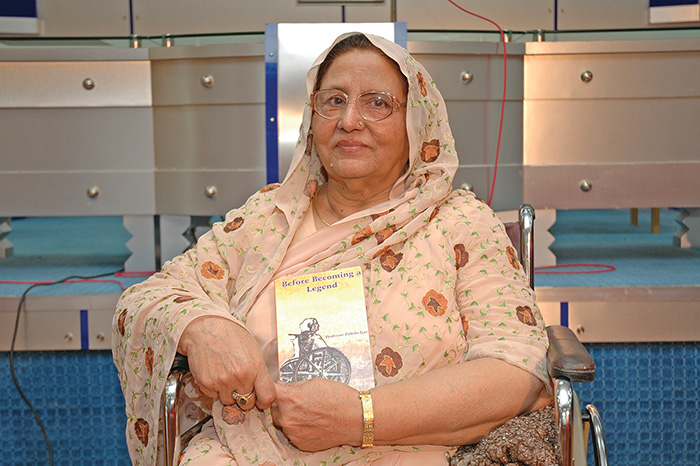
Oman-based humanitarian Professor Zahida Ijaz is now caring for 23 handicapped Pakistani children in her recently opened shelter in Lahore.
The shelter is run by her NGO, Voice Society for the Rehabilitation of Special Persons, and provides children with social welfare, professional empowerment, education, support for medical procedures, as well as leadership training.
The pioneering disability-rights activist told the Times of Oman, “I am a great-grandmother, I retired as head of the English department at Lahore Women’s University. I had enough funds to gift a shelter home to handicapped children from the periphery of Lahore, particularly the rural areas, where they didn’t have any medical facilities. Most of them are on their feet in five-six months. Others, of course, go through treatment for five-six years. Gradually, we help them undergo different kinds of surgery.”
Some parents abandon their children and even refuse to visit them during the surgery. “All of them have talent and we are trying to polish those abilities. We are giving them medication, education, and rehabilitation. So, for that, I have gifted this house to them,” she said.
**media[869118]**
For the 80-year-old retired professor, it was her own experience as a sufferer of polio that triggered her activism from a very young age.
“I got polio at the age of nine months. By that age, my mother used to say, I didn’t crawl, I just stood up. But then, within five days of the disease’s attack, I was paralysed. My whole body was paralysed. Until the age of five, I could not sit up by myself. I needed support. Thank God, with the help of my parents and good people, with their encouragement, I got educated, married also. My marriage was another miracle,” she said.
“In my country, during my childhood people would either just push a disabled person into a corner of the house or he/she was taken to a shrine. My father once took me to visit a shrine and I saw so many disabled people there. And I was angry, and thought it was unfair and unjust. These people also have the right to live. If they have a disability, it is not their fault. Society must help them become self-reliant. So, these were ideas I had from childhood. They tried to treat me in the same way, but I revolted. I said no.” Blessed with parents who loved her very much, it was also with their untiring support that Ijaz was able to rise above her circumstances. “My father loved me so much that even when he went out for a walk he would carry me on his shoulders. He was always showing me different things and I would ask him to take me to a tree so that I could peep into a nest or pluck a fruit. He loved doing that. All the same, he was overprotective. With tears in his eyes, he would say, ‘No, no, children will hit her and run away.’ My mother was very brave and would say, ‘I know my daughter, she is brave enough to face society, so she must get a higher education’,” she said.
**media[869119]**
“The term disabled is a misnomer. If a person has one deficiency, there are so many other talents that compensate for it, so much God-given potential, which needs to be explored and supported by society. That’s what I’m doing, because I’ve suffered it all. At that time, society did not have much awareness.”
Now, Ijaz is preparing to launch the Arabic version of her celebrated memoir, Before becoming a legend. The book, which details her extraordinary life, is already available in English and Urdu.